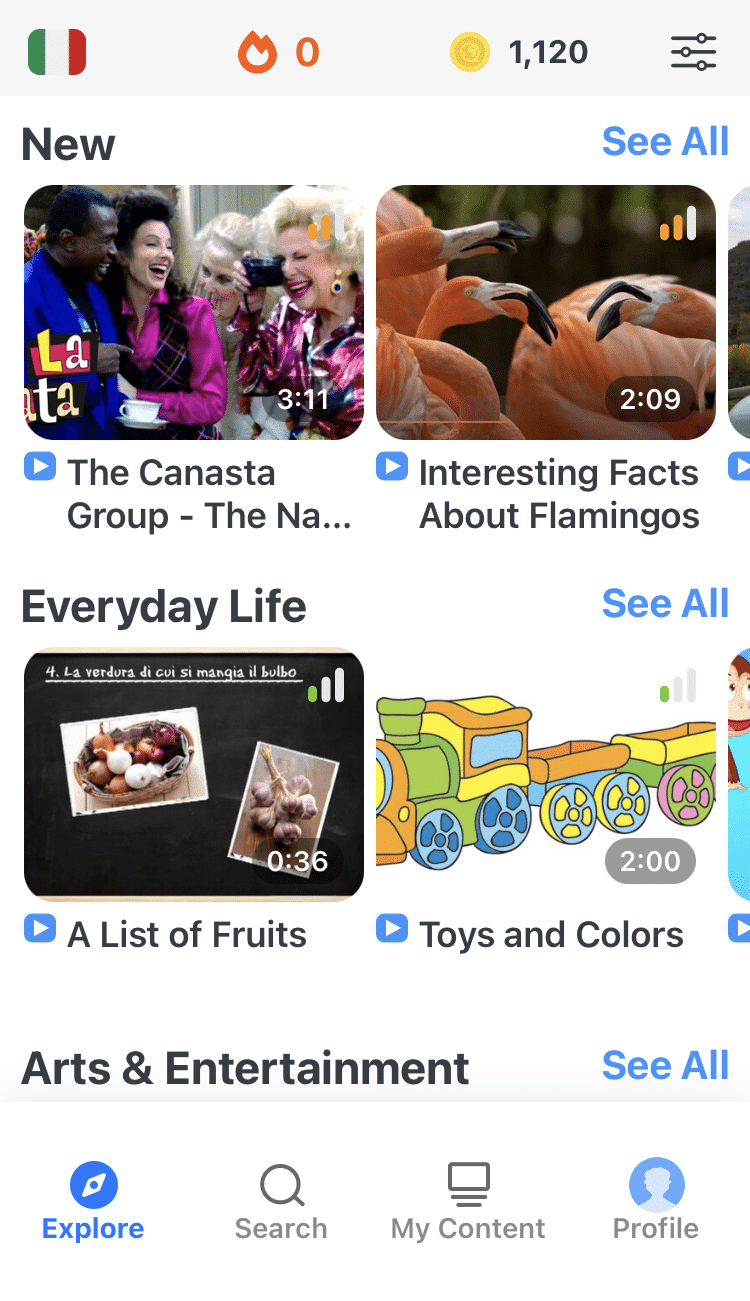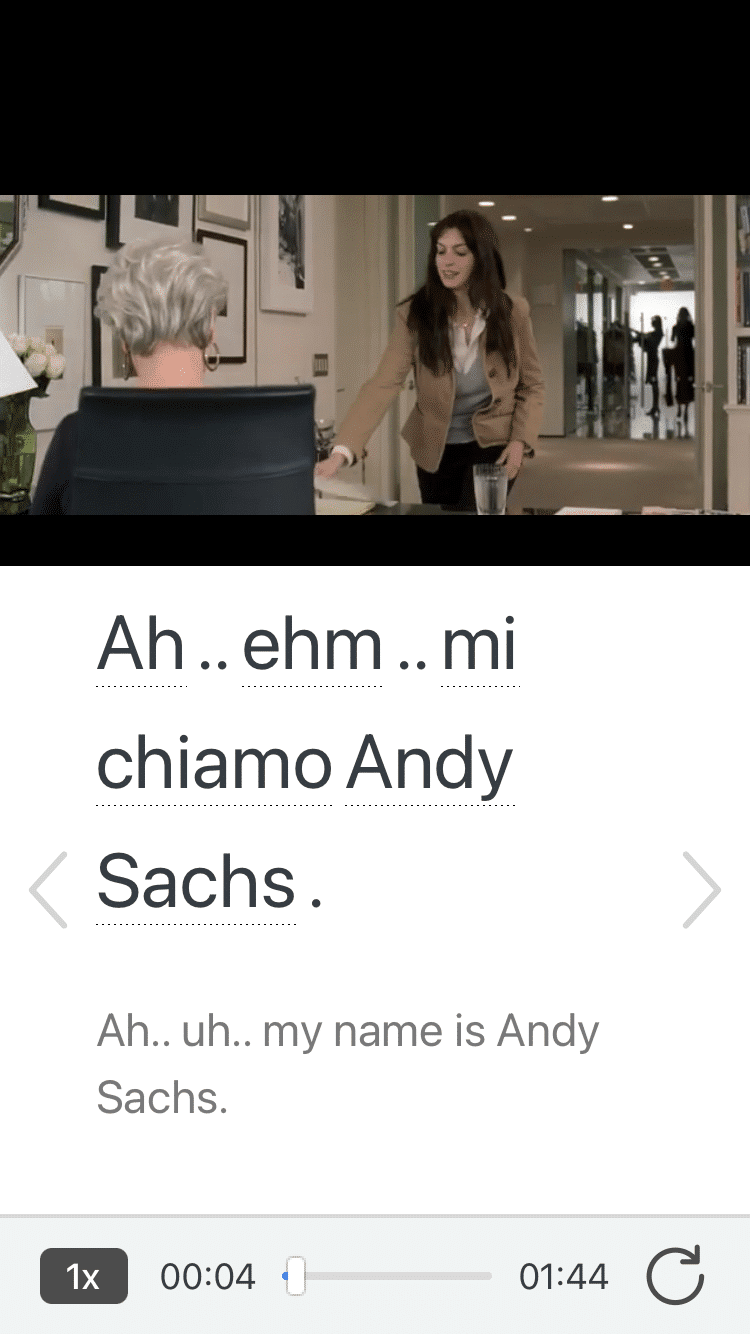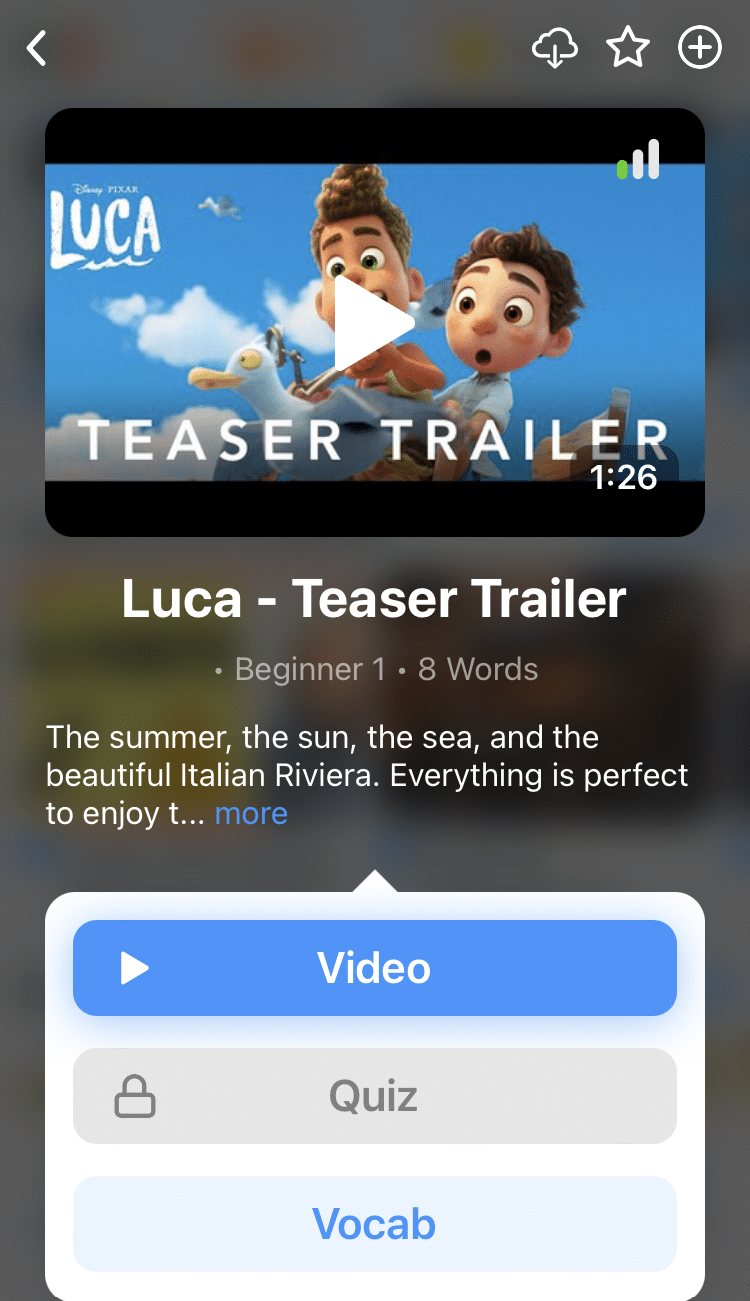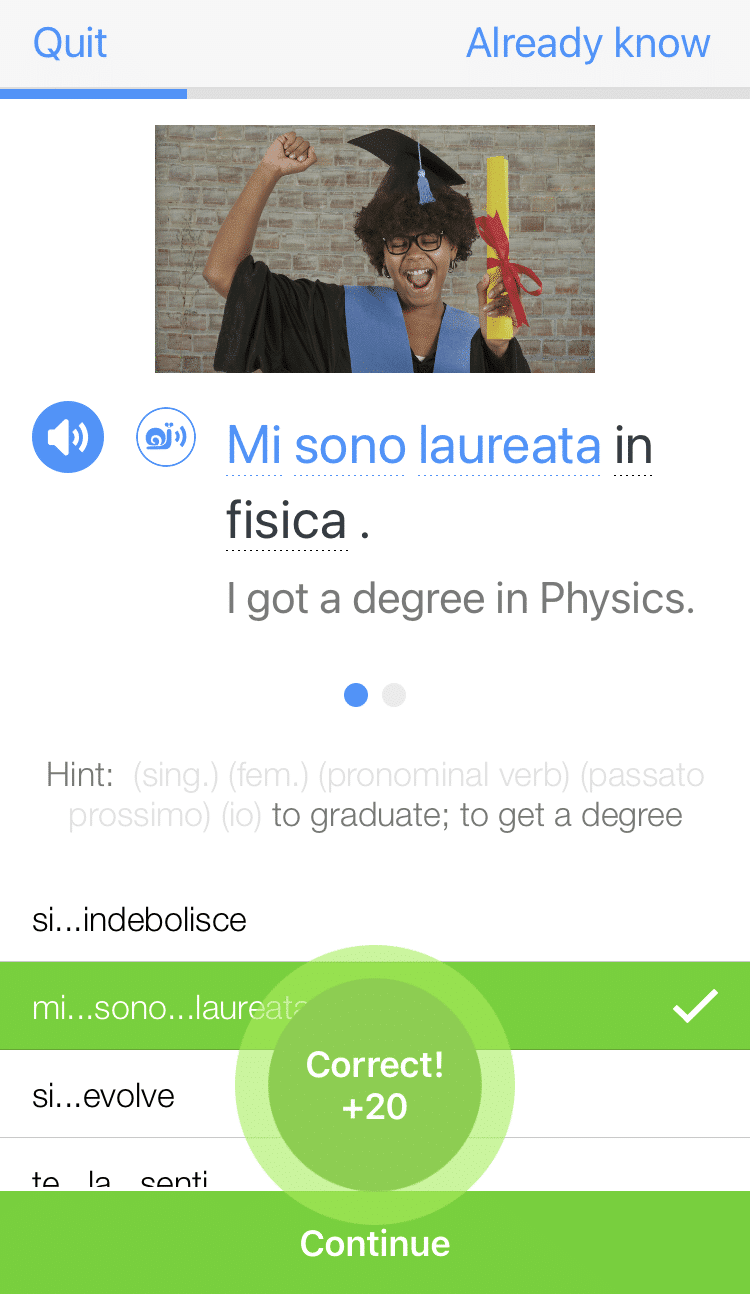
14 Italian False Friends
Italian is a very easy language for English speakers to learn!
That’s because the two languages share a lot of similarities in vocabulary.
But not all words that look similar between the two languages mean the same thing.
These words are the wolves in sheep’s clothing of language learning: the false friends!
In this article, you’ll learn why the Italian and English languages are so similar.
We’ll also dive into how you can improve your Italian by looking at some common Italian false friends.
Contents
- Italian and English Are Natural Language Friends
- What Are Italian Cognates and False Friends?
- Italian False Friends with English
- And One More Thing...
Download: This blog post is available as a convenient and portable PDF that you can take anywhere. Click here to get a copy. (Download)
Italian and English Are Natural Language Friends
To understand why English and Italian are so similar, you have to understand a bit about their shared history. Both English and Italian are part of the large Indo-European language family. Think of this language tree as a family tree, stemming from a single language ancestor.
In this case, that ancestry is Proto-Indo-European, spoken in Central Asia as early as 7,000 BC.
Nomadic tribes from Central Asia started moving into Europe around 5,000 BC, spreading their language along the way. Today, the majority of the languages spoken in Europe belong to the Indo-European language family.
Italian is part of the Latin branch of the Indo-European family, together with Spanish, French and Romanian. Latin was the language of the ancient Romans, and it spread throughout the massive Roman empire which included present-day France, Spain and Italy.
English is part of the Germanic branch of Indo-European languages, together with Dutch, German and the Scandinavian languages. These languages remained independent from the influence of the ancient Romans. Still, the languages of the Latin and Germanic branches have similarities by virtue of being Indo-European languages.
English, however, is unique among the Germanic languages. Remember 1066 and the Battle of Hastings from history class? After this event, England was taken over by William the Conqueror of Normandy, whose people spoke Old French. One of the results was that the English language became Latinized.
That’s why the English language has a large portion of its vocabulary (about 40%) rooted in Latin, and why the sentence structure of English is more similar to the Latin languages than its Germanic counterparts.
What Are Italian Cognates and False Friends?
Since the Italian and English languages share roots, there are a lot of words in both languages that share a common Latin root. These words can be split up into two groups: cognates and false friends. Learning about these two can help improve your Italian vocabulary.
A cognate is a word that has a similar spelling and the exact same meaning between two languages. For example, tavolo and table. Forchetta and fork. Piatto and plate. They’re not exactly the same, but close enough that an English speaker can easily remember the Italian equivalent. Cognates are your true friends when it comes to learning a second language.
False friends, on the other hand, make learning a new language a bit more tricky. A false friend is a word in a foreign language that’s spelled and pronounced in a similar way to a word in another language but has a totally different meaning. Therefore, you have to memorize what the false friends are in your target language to make sure you aren’t saying the wrong thing.
English and Italian share a lot of cognates but they also share a lot of false friends. The following list gives you the most common Italian false friends to watch out for. By memorizing this list, you can make your Italian much more accurate and fluent-sounding.
Italian False Friends with English
False Verb Friends
1. Annoiare vs. To Annoy
If you’re babysitting and the kid is being a brat, don’t call their parents and tell them “il bambino mi annoia.”
They’ll think “oh, the kid is boring you? It’s your job to entertain the kid, not the other way around.”
That’s because annoiare means to bore, not to annoy. To describe someone or something that’s annoying in Italian, use irritare or dare fastidio.
2. Confrontare vs. To Confront
Let’s say you’re going to confront a company that’s been dumping their garbage into the lake about their terrible environmental policies.
If you’re going to band some (Italian speaking) people together and say “confrontiamo l’azienda,” they’ll think “compare the company to what?”
That’s because confrontare means to compare, not to confront. If you want to confront that polluting company, use affrontare.
3. Domandare vs. To Demand
Babysitting that bratty kid again? If you say “io domando che tu vada a letto,” the kid will continue to walk all over you.
You didn’t demand that he goes to bed. You asked nicely.
Domandare means to ask, not to demand. If you want to show the kid who’s boss, use pretendere (to demand—more on this later in this post!).
4. Frequentare vs. Frequently
Frequent isn’t a word that often gets used as a verb in English.
In Italian, frequentare means to attend or, in popular language, to date. For example, Alessandro e Giovanna si frequentano means Alessandro and Giovanna are seeing each other.
It doesn’t mean that you do something frequently. For that, use spesso, e.g. vado spesso all’ opera (I go frequently to the opera).
You can, however, use the Italian word to mean “to frequent,” as in Questo bar e’ frequentato da soldati (This bar is frequented by soldiers).
5. Pretendere vs. To Pretend
You and your Italian-speaking friend are at a play and you say to them “Gli attori pretendono bene!”
But to your friend, you didn’t just say that actors are good at pretending. You just said that they’re good at expecting.
Pretendere means to expect, not to pretend. If you want to say someone is pretending, use fingere, e.g. lui finge (he is pretending).
In fact, pretendere is all about expecting without any right to do so: Pretende di passare l’esame senza avere studiato. (He expects to pass without studying.)
You can also use the word as meaning “to demand or require,” or to claim or assert something: Pretende di avere sempre ragione. (He thinks he is always right.)
False Adjective Friends
6. Attualmente vs. Actually
Is someone spreading a fake news story they read on Facebook?
You want to set them straight so you say “attualmente [insert fact].”
But that’s not the best way to interject your stellar fact checking because attualmente means currently not actually.
If you want to show up the person who can’t do two minutes of research begin by saying, “in realtà [insert fact].”
7. Educato/a vs. Educated
You’re in a job interview and you want to highlight the quality of your education.
You say to the interviewer “sono ben educato/a.”
They raise an eyebrow and say “well, I sure hope you’re polite.” Educato/a means polite, or that you were raised well by your parents.
If you want to say that you’re a smarty-pants use istruito/a instead.
8. Grosso/a vs. Gross
Against your better judgment, you buy some gas station sushi.
You take a bite and say, “che grosso!”
But what you said was that the sushi is big, huge. If you want to describe the grossness of your fishy mistake, say “che schifo!” instead.
9. Morbido/a vs. Morbid
You and a friend go to an open mic night at a coffee bar and some goth is up there reading their sad poetry. “Che morbido!” you say to your friend.
But the goth is wearing a lot of chains and spikes and your friend thinks that they don’t look soft at all. (Although they could probably use a hug.)
Morbido in Italian means soft, not morbid. For that, you want to say morboso.
False Noun Friends
10. Camera vs. Camera
In Italy, a camera is something you ask for at a hotel, not an electronics store. That’s because a camera is a room, not a device for taking pictures.
That’s una macchina fotografica.
11. Fabbrica vs. Fabric
Sewing a quilt? Don’t go to the fabric store and ask for some fabbrica.
In Italian, fabbrica means a factory, not fabric (which is tessuto).
12. Fattoria vs. Factory
Let’s say you actually did mean to visit a factory because you work in logistics.
You get lost on the way and ask someone “Dov’è la fattoria?”
He gives you directions to a farm. That’s because fattoria means farm, not factory. For that, as you just learned, you want to say fabbrica.
13. Libreria vs. Library
Want to borrow some Italian books for free? Don’t go to the libreria. You’ll find books there, but you’ll have to pay! That’s because libreria means bookstore. For free books, you want to go to the biblioteca.
14. Preservativo vs. Preservative
Let’s say you’re shopping for some breakfast cereals and want something healthy.
You ask an employee “Dove sono i cereali senza preservativi?” The employee looks at you baffled and calls the manager to escort you out of the store because you just asked for cereal without condoms.
If you want food without preservatives, use “senza conservanti.”
When learning a language so similar to English, such as Italian, it’s good to use cognates to help you along. But watch out for the false friends!
One of the best ways to learn the differences in meaning is to hear false friends used in context. For example, you could try using an immersive language learning program like FluentU to search for these terms and see how they are used by native speakers.
FluentU takes authentic videos—like music videos, movie trailers, news and inspiring talks—and turns them into personalized language learning lessons.
You can try FluentU for free for 2 weeks. Check out the website or download the iOS app or Android app.
P.S. Click here to take advantage of our current sale! (Expires at the end of this month.)
By learning and memorizing what the false friends are, your Italian will sound much more fluent.
Download: This blog post is available as a convenient and portable PDF that you can take anywhere. Click here to get a copy. (Download)
And One More Thing...
If you're as busy as most of us, you don't always have time for lengthy language lessons. The solution? FluentU!
Learn Italian with funny commericals, documentary excerpts and web series, as you can see here:

FluentU helps you get comfortable with everyday Italian by combining all the benefits of complete immersion and native-level conversations with interactive subtitles. Tap on any word to instantly see an image, in-context definition, example sentences and other videos in which the word is used.

Access a complete interactive transcript of every video under the Dialogue tab, and review words and phrases with convenient audio clips under Vocab.

Once you've watched a video, you can use FluentU's quizzes to actively practice all the vocabulary in that video. Swipe left or right to see more examples of the word you’re on.

FluentU will even keep track of all the Italian words you’re learning, and give you extra practice with difficult words. Plus, it'll tell you exactly when it's time for review. Now that's a 100% personalized experience!
The best part? You can try FluentU for free with a trial.
Start using the FluentU website on your computer or tablet or, better yet, download the FluentU app from the iTunes or Google Play store. Click here to take advantage of our current sale! (Expires at the end of this month.)

















